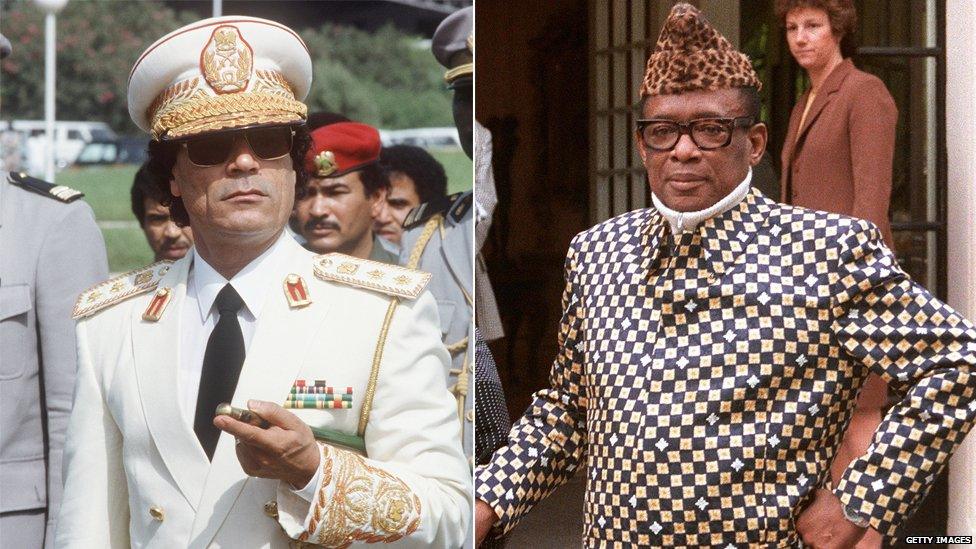Rwandans vote on allowing third Kagame presidential term
- Published
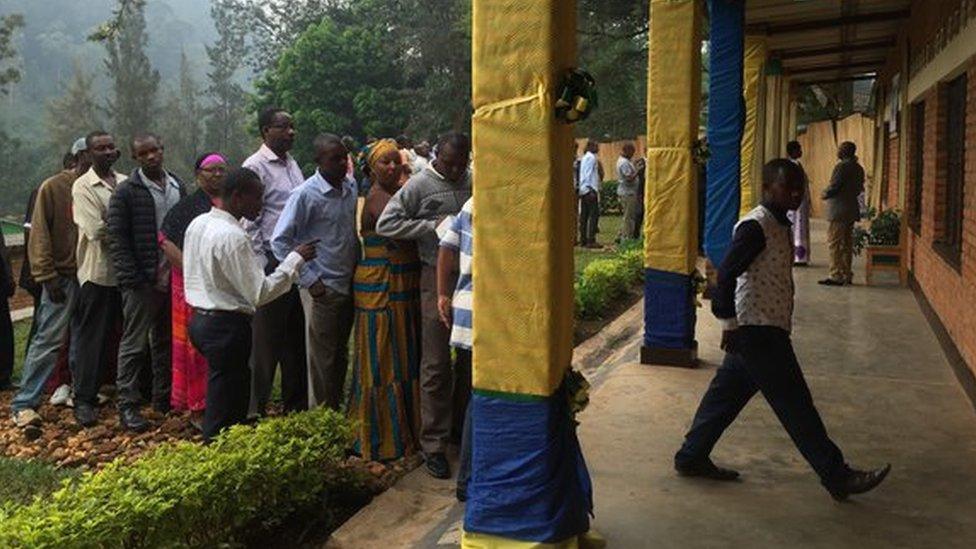
Rwandans have voted in a referendum on a constitutional amendment which would allow President Paul Kagame to seek a third term in office.
Polls have now closed and votes are being counted, with a result expected later.
Most voters, some 6.4 million, were eligible to vote, but around 37,000 Rwandans living overseas were able to vote on Thursday.
The change would allow Mr Kagame to potentially remain in power until 2034.
Rwandans are expected to vote overwhelmingly in favour of changing the constitution.
As President Kagame cast his ballot at a polling station in the capital Kigali, the BBC's Catherine Byaruhanga asked him why it was necessary to change the constitution:
"I did not apply for this, you go and ask Rwandans why they got involved in this," he said.
The New York based Human Rights Watch has warned of Rwandans censoring themselves out of fear of the government.
"No suspense in Rwanda referendum when so many dissidents silenced, civil society stifled" HRW executive director Kenneth Roth tweeted earlier, external.

At the scene: Catherine Byaruhanga, BBC Africa, Kigali
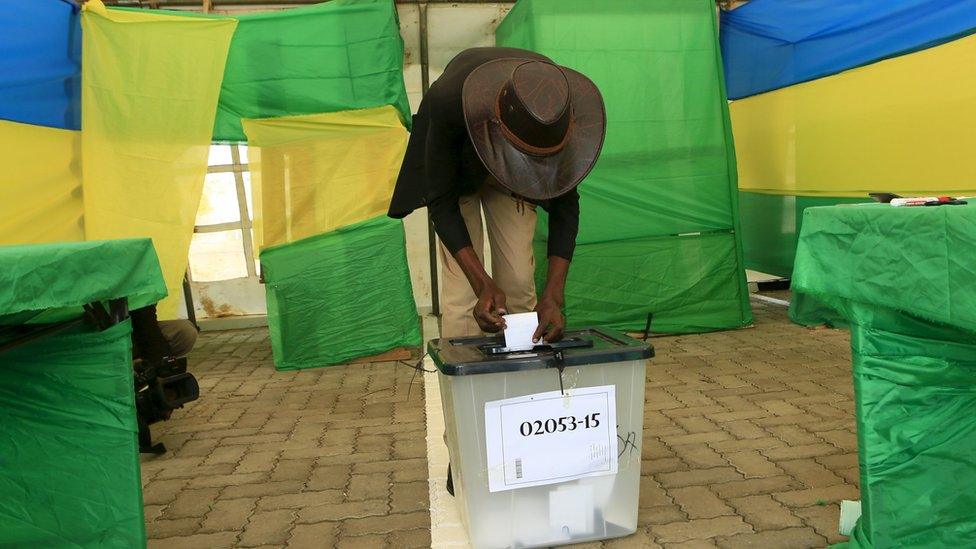
People have been steadily streaming in to Rugunga polling station close to State House in Kigali. It is a streamlined and efficient process. Several classrooms in the school here are being used for the ballot, so waiting times do not seem long. The only excitement is the music playing on the speakers put up.
There has been no campaigning in this referendum - the law does not allow it. Public rallies have been carried out around the country to give people information about the ballot. The government views this as a national non-partisan exercise. Blue, yellow and green colours of the Rwandan flag can be seen everywhere including around the polling booths.
Mr Kagame is praised at home and abroad for bringing about development and economic growth, but his critics accuse him of heavy-handed rule and human rights abuses. The president himself has said he will wait for the outcome of the referendum before making his decision on whether to run in 2017.
Read more updates on Africa Live

One 22-year-old voter in neighbouring Uganda's capital Kampala told AFP: "I came to vote... because we want our president to continue leading us".
But another said voting was a waste of time "because we know the results already".
"Kagame wants to stay in power... he can have what he wants," he said.

What are Rwandans voting on?
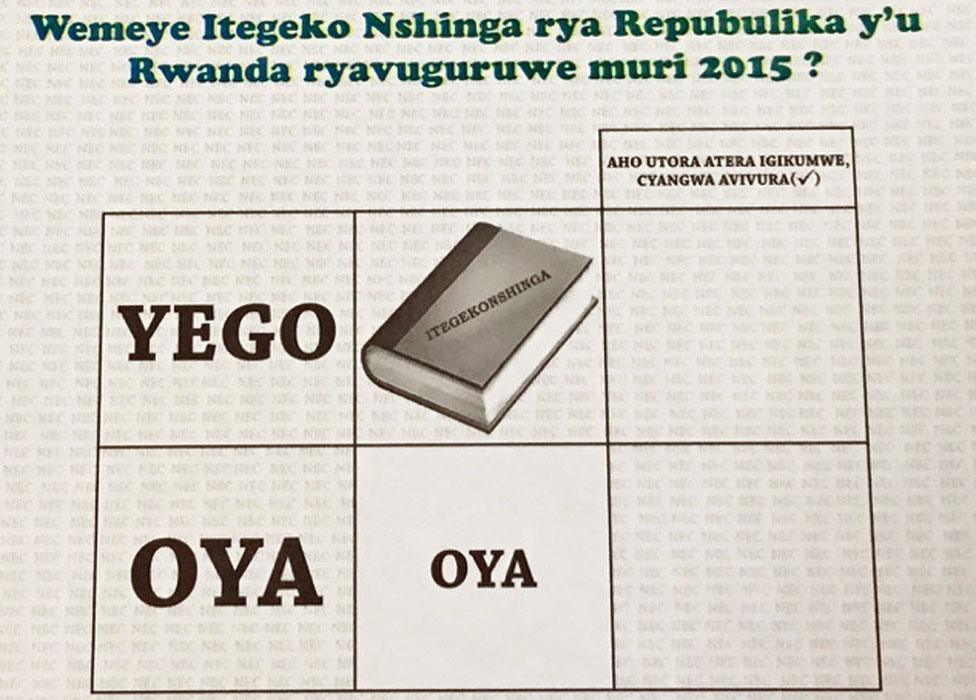
The exact question is: "Do you accept the constitution of the Republic of Rwanda that was amended in 2015?"
Earlier this year MPs passed these amendments to constitution:
1) Presidential term limits:
To be cut from seven years to five years - with the two-term tenure remaining
But an exception has been made for President Kagame, who will be allowed to run for one more seven-year term and two further five-year terms because of petitions collected from 3.7 million Rwandans demanding he remain in office
2) Senators' term limits: To be extended from one eight-year term to two five-year terms
3) Gacaca courts: References to the community courts set up to deal with those accused of involvement in the 1994 genocide are to be removed as they have finished trying nearly two million people

If more than 50% of voters agree to the amendments, Mr Kagame could leave power after 34 years as president - he was first elected to the position by MPs in 2000.
Mr Kagame's Rwanda Patriotic Front, an ethnic Tutsi rebel force, ended the 1994 genocide perpetrated by Hutu extremists and has been in power ever since.
Some 800,000 people - Tutsis and moderate Hutus - are estimated to have been killed.
Donor countries, which support the Rwandan government, have been very critical of the move to change the constitution.
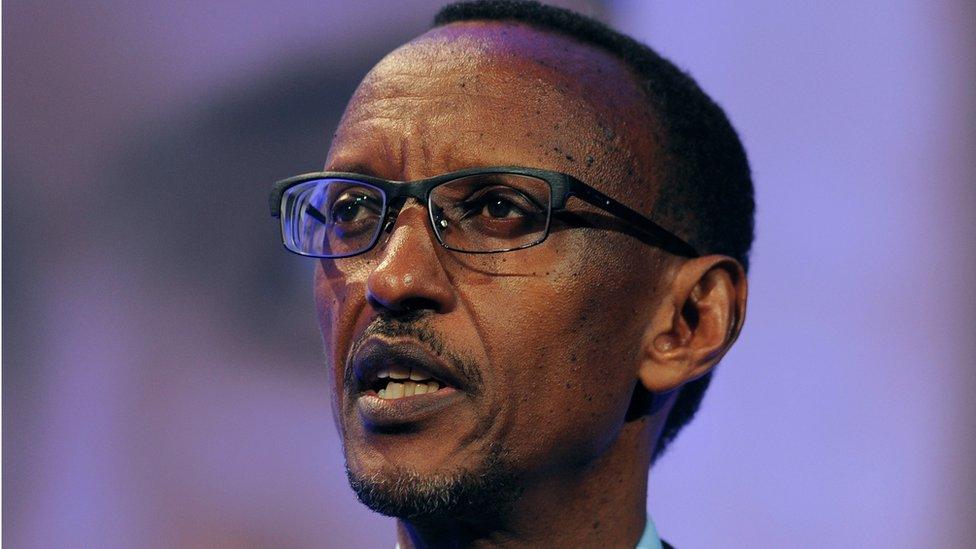
President Kagame told "other nations" to stay out of Rwanda's internal affairs
The US urged Mr Kagame to step down in 2017, saying he had "an opportunity to set an example for a region in which leaders seem too tempted to view themselves as indispensable to their own countries' trajectories".
The president has hit back at "other nations" for interfering in Rwanda's internal affairs.
The issue of African presidents seeking a third term in office has caused unrest elsewhere on the continent this year, including in Burundi and Congo-Brazzaville.
- Published3 August 2017
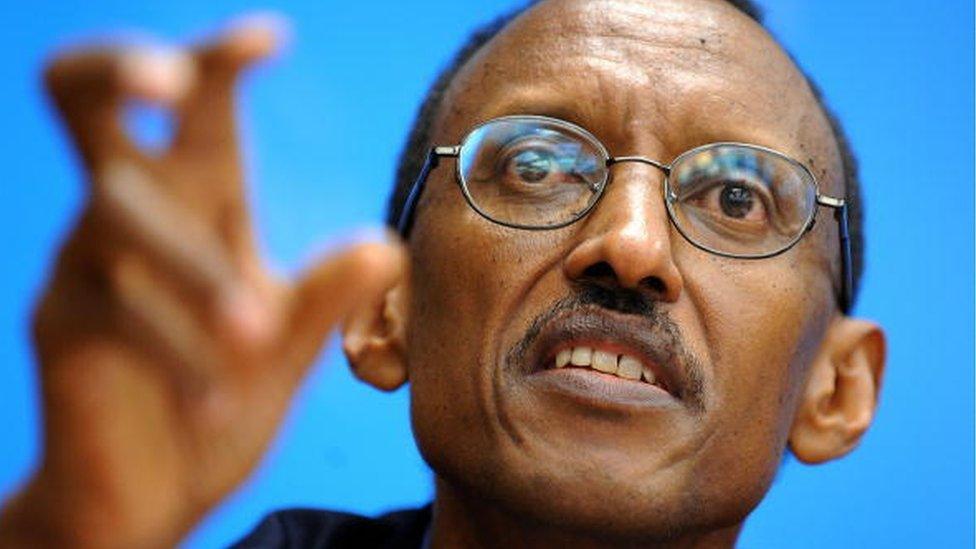
- Published13 July 2015
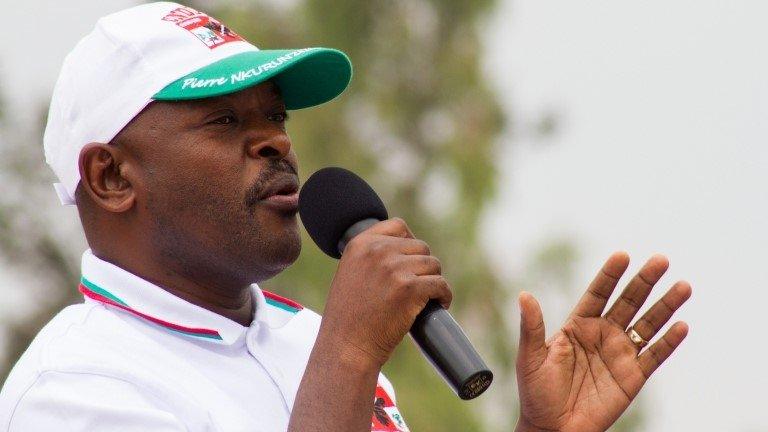
- Published18 August 2015
